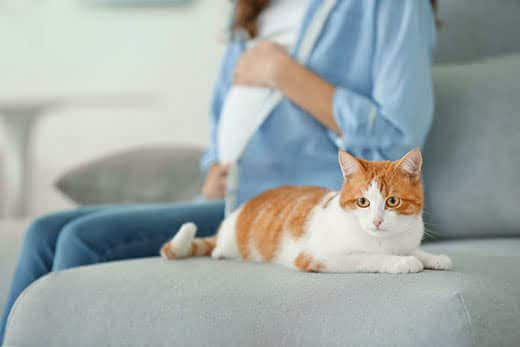
-
Find the right food for your pet
Take this quiz to see which food may be the best for your furry friend.
Find the right food for your pet
Take this quiz to see which food may be the best for your furry friend.
Featured products
 Small & Mini Savory Stew with Chicken & Vegetables Dog Food
Small & Mini Savory Stew with Chicken & Vegetables Dog FoodA delicious complement to the nutrition of Science Diet Small & Mini 7+ dog food
Shop Now Adult Healthy Cuisine Roasted Chicken, Carrots & Spinach Stew Dog Food
Adult Healthy Cuisine Roasted Chicken, Carrots & Spinach Stew Dog FoodDelicious roasted chicken paired with tender vegetables in a succulent stew
Shop Now Adult 7+ Perfect Digestion Chicken, Whole Oats & Brown Rice Recipe Dog Food
Adult 7+ Perfect Digestion Chicken, Whole Oats & Brown Rice Recipe Dog FoodScience Diet's breakthrough nutrition supports ultimate digestive well-being & healthy microbiome for dogs age 7+
Shop NowFeatured products
 Adult 7+ Senior Vitality Chicken & Vegetable Stew Cat Food
Adult 7+ Senior Vitality Chicken & Vegetable Stew Cat FoodImproves Everyday Ability to Get Up & Go
Shop Now Adult 7+ Tender Tuna Dinner Cat Food
Adult 7+ Tender Tuna Dinner Cat FoodWith delicious chunks in a decadent gravy
Shop Now Adult Savory Entrée Can Variety Pack Cat Food
Adult Savory Entrée Can Variety Pack Cat FoodPrecisely balanced nutrition with the delicious taste of savory minced chicken to help fuel the energy needs of cats during the prime of their life
Shop Now -
Dog
- Dog Tips & Articles
-
Health Category
- Weight
- Food & Environmental Sensitivities
- Urinary
- Digestive
- Joint
- Kidney
-
Life Stage
- Puppy Nutrition
- Adult Nutrition
- Senior Nutrition
Cat
- Cat Tips & Articles
-
Health Category
- Weight
- Skin & Food Sensitivities
- Urinary
- Digestive
- Kidney
-
Life Stage
- Kitten Nutrition
- Adult Nutrition
Featured articles
 Does My Pet Hate Me?
Does My Pet Hate Me?Learn tips for bonding with your pet if you've ever thought, 'My dog doesn't like me, or 'Why do I have a standoffish cat?'
Read More Why Are Dogs and Cats So Cute?
Why Are Dogs and Cats So Cute?If waggy puppy dog tails and furry kitten yawns make you swoon, you're not alone. Why are cats so cute? And, dogs too! Let's find out!
Read More Do Dogs and Cats have Belly Buttons?
Do Dogs and Cats have Belly Buttons?Learn whether cats & dogs have belly buttons like humans, what the function is, and if there are any health concerns associated with it.
Read More -


Toxoplasmosis in cats is an infectious disease caused by the parasite Toxoplasma gondii. Toxoplasma is one of the most common parasites in cats and can infect nearly all warm-blooded animals. More than 60 million people in the U.S. are thought to be infected with Toxoplasma gondii, according to Cornell University's College of Veterinary Medicine. Although cats are a necessary part of the life cycle of Toxoplasma, the parasite rarely causes any sickness in cats.
Let's take a closer look at toxoplasmosis as well as possible signs that your cat may have this disease.
What is Toxoplasmosis in Cats?
Toxoplasma gondii is one of the most common internal parasites in cats. While Toxoplasma can infect any warm-blooded animal, including birds, cats are the definitive host of toxoplasma; therefore, this parasite can only replicate in cats.
Toxoplasma is shed in the feces of infected cats. Cats become infected with Toxoplasma by eating anything contaminated by feces from other infected cats. They can also become infected by eating rodents, birds or other small warm-blooded animals infected with Toxoplasma. Once a cat becomes infected with Toxoplasma, the parasite grows and replicates in the gastrointestinal tract. Cats that are newly infected with Toxoplasma are considered contagious for about two weeks after the initial infection.
Cats with compromised immune systems — such as cats infected with the leukemia virus, feline immunodeficiency virus (FIV), the virus that causes feline infectious peritonitis (FIP), Mycoplasma haemofelis, cats that are receiving chemotherapy or cats that have had a kidney transplant — are at an increased risk for developing severe or life-threatening complications associated with Toxoplasmosis.

Symptoms of Toxoplasmosis in Cats
After being exposed to Toxoplasma, most cats become immune and may never show any signs. A smaller proportion of cats may develop mild diarrhea and lose their appetite. Toxoplasma can also negatively impact a cat's liver, lungs and nervous system. Additional signs associated with Toxoplasma include:
- Fever
- Difficulty breathing
- Vomiting
- Weight loss
- Abdominal distention due to fluid retention
- Neurological signs, including seizures, incoordination, circling, head tilt
- Red eyes, swollen eyes, blindness
If you think your cat might be infected with toxoplasma, schedule an appointment with your local veterinarian as soon as possible. To protect people and other warm-blooded animals in the household, use gloves when cleaning the litter box, prevent any other animals from accessing the litter box and always wash your hands after cleaning the box. Women who are pregnant should not clean the litter box.
Toxoplasmosis in Kittens
Kittens exposed to the parasite while still in the womb are the most vulnerable; they're more likely to show signs than adult cats. These kittens are often stillborn or die before weaning. If a kitten survives, they often won't eat, will develop a high fever that doesn't respond to antibiotic therapy, and suffer from severe respiratory and neurological complications as well as liver problems.


Tasty Tips
Transmission from Cats to Humans
Toxoplasmosis in cats is considered a zoonotic disease, which means that humans can contract toxoplasmosis from infected cats. However, because toxoplasmosis is such a common parasite, many have already been exposed and are immune to the disease. In most people, toxoplasmosis only causes mild flu-like signs; immunocompromised individuals may develop more severe signs, such as fever, heavy breathing or neurological problems like seizures.
The people who run the greatest risk of becoming infected with toxoplasmosis are women who are pregnant and those with weakened immune systems. If a pregnant woman becomes infected with Toxoplasmosis, the fetus can develop neurological abnormalities, or the infection can result in miscarriage or stillbirth. Visit the Center for Disease Control or consult your primary healthcare provider to learn more about Toxoplasma in humans.
Diagnosis and Treatment for Toxoplasmosis in Cats
Your veterinarian will utilize a combination of an oral history, physical exam and laboratory findings to diagnose Toxoplasmosis in your cat. Expect your vet to take blood and fecal samples, and they may require urine samples as well. If your cat is showing respiratory signs, your vet may order a chest X-ray. If neurological signs are noted, additional tests may be ordered. Toxoplasmosis in cats is definitively diagnosed by detecting antibody and antigen titers in the blood.
Unless they are very sick, cats who test positive for Toxoplasmosis are usually treated at home. The medication of choice for Toxoplasmosis is typically an antibiotic called Clindamycin, given twice daily for at least two weeks as prescribed by a veterinarian. Signs of the disease usually decrease fairly quickly after starting therapy. Very sick cats who cannot eat or drink adequately may be hospitalized for treatment.
Prevention of Toxoplasmosis in Cats
The easiest way to prevent Toxoplasmosis in your cat is to keep your cat indoors as well as avoiding feeding your cat raw meat, bones, viscera or unpasteurized milk. Preventing your cat from free roaming, hunting birds and rodents, or entering buildings where food-producing animals are housed, are additional ways you can protect your cat from this disease.
If you're pregnant, consider speaking with your veterinarian and having your cat tested for Toxoplasma. Healthy cats with positive antibody titers pose little danger to humans, but cats without an antibody titer are more at risk of becoming infected and posing a danger to humans. Your veterinarian can offer guidance. Additionally, talk with your doctor if you have questions about Toxoplasmosis and your pregnancy.
While Toxoplasmosis in cats is common, taking the necessary precautions can protect yourself and your cat from this disease.


Dr. Sarah Wooten graduated from UC Davis School of Veterinary Medicine in 2002. A member of the American Society of Veterinary Journalists, Dr. Wooten divides her professional time between small animal practice in Greeley, Colorado, public speaking on associate issues, leadership, and client communication, and writing. She enjoys camping with her family, skiing, SCUBA, and participating in triathlons.
Related products

Supports energy level and beautiful fur in mature cats

With delicious chunks in a decadent gravy

Precisely balanced nutrition with the delicious taste of savory minced chicken to help fuel the energy needs of cats during the prime of their life

Improves Everyday Ability to Get Up & Go
Related articles

Discover the benefits of Hill's line of kitten foods and how they provide complete and balance nutrition for growing kittens.

Discover how to identify cat sensitive skin and what you can do to help your cat thrive from head to paw.

Brushing your cat's teeth is just as important as brushing your own. Learn signs or oral health problems in your cat and how to avoid them.

Discover which cat toys games your feline friend might like, and how they are great sources of exercise. Explore our library of articles to learn more.

Put your cat on a diet without them knowing
Our low calorie formula helps you control your cat's weight. It's packed with high-quality protein for building lean muscles, and made with purposeful ingredients for a flavorful, nutritious meal. Clinically proven antioxidants, Vitamin C+E, help promote a healthy immune system.
Put your cat on a diet without them knowing
Our low calorie formula helps you control your cat's weight. It's packed with high-quality protein for building lean muscles, and made with purposeful ingredients for a flavorful, nutritious meal. Clinically proven antioxidants, Vitamin C+E, help promote a healthy immune system.


